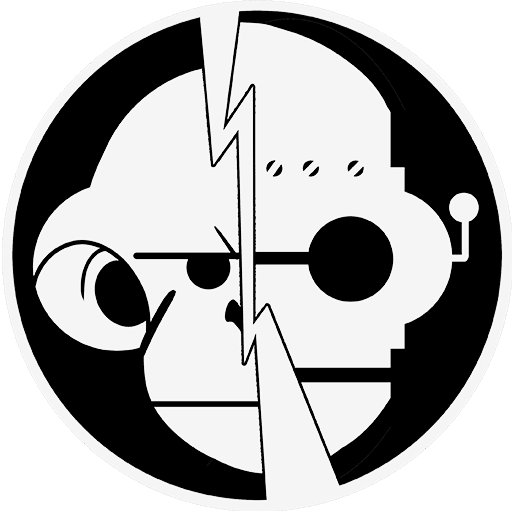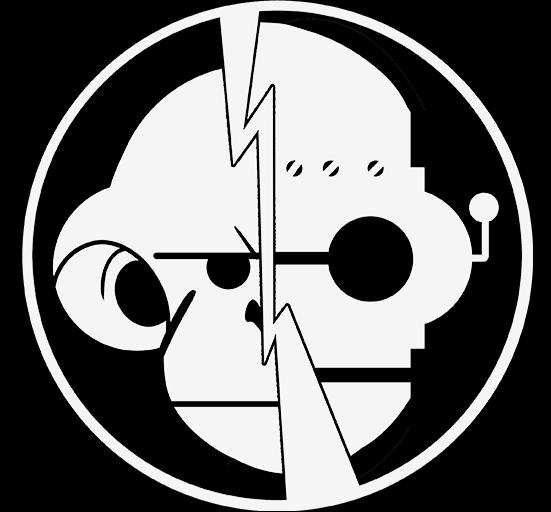Hulu’s Little Fires Everywhere was produced by and stars Reese Witherspoon and Kerry Washington as matriarchs surviving secrets, motherhood, and tragedy. To help make these little fires roar are composers Isabella Summers (Florence and the Machine) and Mark Isham (Once Upon A Time, Blade).
Little Fires Everywhere is a mini-series based on the 2017 novel by American author Celeste Ng. The story centers around Reese’s well-to-do Elena Richardson, a mother of four and a part-time journalist and Washington’s Mia, an artist and a single mother of one daughter. Elena’s curiosity with Mia begins a relationship that cascades into dramatic goodness.
PopAxiom took some time to talk to Mark about his career in making music, from Time Cop and Point Break to Little Fires Everywhere, and Bill and Ted: Face the Music.

Novice To Veteran
Mark Isham is an industry veteran having scored his first project called Never Cry Wolf way back in 1983. Along the way, he’s done tearjerkers and action favorites and just about everything in between. Where did his love of music begin? “Music was always a part of my life. I don’t remember it not being there. Both of my parents were musicians. My mother was a professional violinist. My father was a professor of humanities and the arts and an amateur violist. They would have sting quartet evenings with friends and always be listening to music.”
Mark’s childhood was filled with classical music. “I knew more about Mozart, Mahler, Beethoven, and Bach than I did the Beach Boys or the Beatles.”
Mark’s mother taught him the violin, but “some baroque trumpet music” made an impact. Mark thought, “… it was pretty glorious, so I decided I wanted to play the trumpet.”
For a while, Mark played violin and trumpet but eventually focused solely on one. “I played trumpet into high school.”
It’s Better Than Music, It’s Jazz
Things changed when Mark heard Miles Davis. “That was the first big change in my perspective of what music could be …” Inspired by Davis and the legacy of jazz music, Mark “… took off in the direction of jazz the last couple of years in high school.”
Mark’s musical journey had still not crossed paths with pop music “… until I realized a lot of jazz musicians were influencing pop music.”
A big fan of diving deep into musical genres (more on that later), Mark did his homework. “I went back and listened to the Beatles and a lot of pop music.”
Mark discovered a whole new sonic world waiting to be understood. “By that time, it was the late 60s, and pop music is going through a brilliant period. The late 60s and early 70s were a great time for music. Jazz, pop music, R&B, all sorts of stuff was just exploding.”
Music Education
One of the most prolific composers of the last three decades, Mark reminisces about his early musical training. “I was fortunate enough to be growing up with all of that and being the guy at the record store picking up the new David Bowie record, the new Talking Heads record, and the new Miles Davis record and that new Return to Forever record and Weather Report record. All of that music informed my music education.”
The road to working in the film and television industry is different for every working creative. “I dropped out of college. I couldn’t stand studying music formally.”
Instead of college, Mark “… worked as a trumpet player. I played in symphonies, rock gigs, and church gigs. I ended up in a band called The Sons of Champlin.”
By the time the 70s were coming to an end, Mark says he “… had a thorough background in classical music, a thorough background in pop music, and a thorough background in jazz.”
Mark’s work ethic and versatility brought about three great things, “… a band record deal, a solo record deal, and a film score offer.”
It’s that moment that Mark considers, “… sort of the beginning of my real professional career.”
So, which deal did Mark choose? “I did them all. I did the band first. We made a record that did okay and got great reviews. I made my solo record after that. Then we went back and made a second band record. Managed to keep the band going for a few years, toured around, but it became too hard. The solo deal was starting to take off. Right around that time, my first film offer came in. So, I took advantage of that. For the next ten years, I kept a film career and solo career going.”
Music 2.0
Growing up, Mark was “… fascinated by electronics.” By the late 70s, synthesizers and other electronics were becoming the norm for music across genres. “It wasn’t hard for me to pick up a modular synthesizer. I built things like that as a kid.”
Mark’s skill set was that of a “… seasoned trumpet player,” and, “… I knew my way around electronics.” Mark adds, “I was there long before computers were ever used for making music, so I was part of the evolution of computers becoming musical instruments.”

Power Of Jazz
In three years of interviewing film industry veterans, composers make up the bulk of those discussions. Backgrounds and educations change, but one thing stays the same and that’s the influence of jazz. What’s Mark’s take on why that one particular kind of music has such an impact on music today. “Jazz is interesting music because it was popular music up until the mid-50s. All throughout the 40s, what we think of as jazz was pop. That was it. Billie Holiday, Duke Ellington, these were pop stars. In the 50s, rock and roll started to come around.”
Mark continues, “Jazz has always had a really sophisticated backbone. It owed a lot of its composition to classical western music. Jazz got more and more esoteric as rock and roll got more prevalent.”
As jazz evolved into this new esoteric state, it meant “… you really have to know what you’re doing. You have to have a thorough background in harmony and how music works to be an accomplished jazz player.”
As rock took over the pop music reigns, and jazz became more rarefied, the genre became an essential place for music. “Jazz by the end of the 70s had become the only place where you could have the sophistication of the evolution of western music that classical music kept going. Classical music just got weird, atonal, and very little stuff written was connecting in that period.”
Jazz was a mix of foundational sonic structures. “Jazz took that sophistication and stayed connected to the rhythms of pop music and world music. It’s a genre that attracted a lot of people that wanted to make interesting, sophisticated music.”
How does that relate to underscoring a film or television series? “Film music has to be that way too. It needs that sophistication but also be able to speak to the public.”
For Mark, the foundation of jazz suggests, “People with that background in jazz were more ready to embrace film music.”
https://www.youtube.com/watch?v=JWGkX8ClhBI
About Little Fires Everywhere
Mark’s filmography is long and includes pop culture classics like Point Break, Blade, and Once Upon A Time. He shares his path to being part of the Little Fires Everywhere team. “Mary Ramos is one of the top music supervisors in this business, meaning she’s hired to put together the musical concepts for films and television shows. She and I had worked together on a film a number of years ago.”
As Mark explains, Mary was “… hired for this show. It’s a very woman-centric show, and they wanted to hire as many women as possible. Mary suggested hiring Isabella Summers [the “machine in Florence and the Machine] to score the show.”
Dawn Soler, the president of music over at Disney, thought it was a fantastic idea. But Dawn said if she [Isabella] had never scored anything, we’re going to need to bring in a pro to work with her. I suggest Mark.”
Mark and Isa met and simply put, the pair “… got along great, and dove in.”

Musical Marriage
Little Fires Everywhere is a nuanced story with incredible performances from its stars and surrounding cast. How did the music come together to match the narratives intensity? “The initial discussion with the showrunners didn’t really yield a lot of great answers. We spun our wheels for a while, to be honest with you. But then Mary and Dawn stepped in …”
What did the pair of women say? “‘Let’s regroup. Let’s spend some time with this show and really decide how to score this show.”
After some time of diving into what the story needs, Mark and Isa, “… scored the entire pilot. We brought Mary and Dawn into a darkened room and played them the whole thing. They thought it was fantastic.”
As Mark explains, “Mary had this initial idea of the sounds that are at the heart of Florence and the Machine married with the things that I do. We just needed a space on our own to figure out what that was.”
Are the rumors of future projects between Mark and Isa true? “We’ve been approached by a Netflix show and looks pretty good so far.”

Mark’s Creative DNA
Mark’s musical education is due, in part, to his relentless pursuit of understanding as much about music as possible. “Music is such a vast language. There’s always something to learn. So, what I do is I find a piece of music that is representing this aspect that I don’t understand, and I dissect it. I figure it out. ‘What makes it work? What rules have been established?’ I pick it apart until I figure it out.”
Unexpectedly, the answer to the question of Mark’s musical influences begins with jazz legend Miles Davis. But growing up during a rapidly evolving era of music means his creative DNA is made up of a wide range of artists. “A band called Weather Report was a huge influence on me. They were one of the first bands to marry jazz, electronics, world music, and classical music all in one genre. To me, it was a huge breakthrough that all those things could live together.”
Also on Mark’s list, “Brian Eno, Gustav Mahler, David Bowie, Thomas Newman, Elliot Goldenthal, Danny Elfman.”
Mark highlights another inspiring creative. “I think the most influential modern composer for me is John Adams (Doctor Atomic). I’ve studied his scores quite a lot. He’s single-handedly saved modern classical music and brought some vitality to it that’s made modern classical quite fun.”
Wrapping Up
In the age of remakes and reboots, what would Mark love to be a part of? “I hear they’re adding a new Matrix movie, I’d love to do that. The first Matrix movie I thought was superb. Anything in that storyline is fascinating to me.”
Mark brings up a new project during his answer “If you’d asked that question a year ago, I would not have put Bill and Ted on that list. Having said that, though, I could not be more pleased to be doing it. It is so much fun. This third one is the best of the three. It’s fantastically well-done, and the guys are as absurd and ridiculous as ever. The director is one of my favorite people.”
Little Fires Everywhere is streaming now on Hulu
with new episodes each Wednesday. Is it on your watch list?
Thanks to Mark Isham and Costa Communications
for making this interview possible.
Want to read more interviews like this? CLICK HERE.

